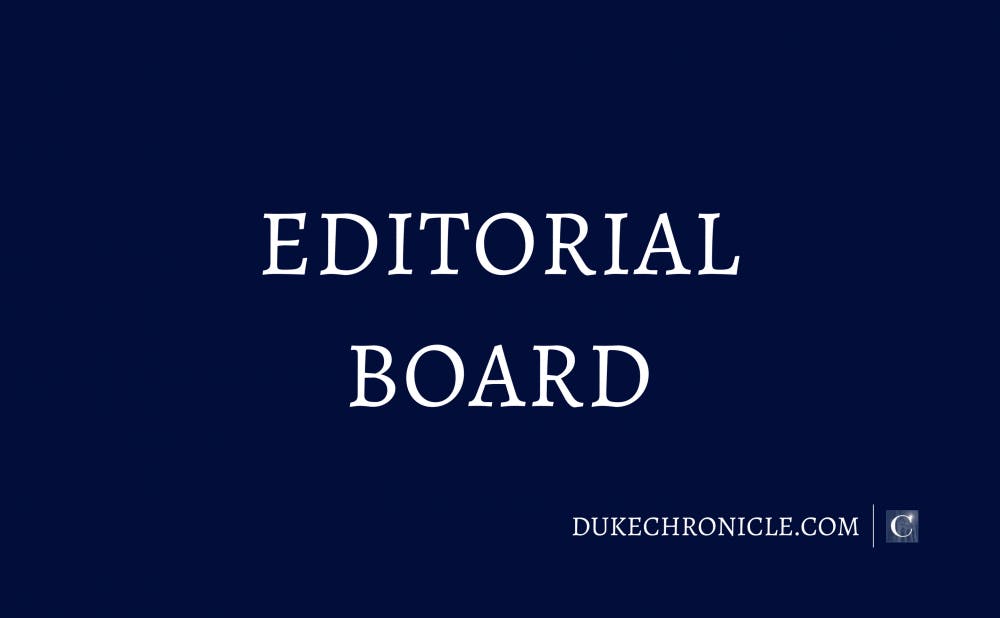Course evaluations for Fall courses went live on DukeHub Tuesday—a reminder that the semester is drawing to a close as we begin the familiar process of providing “constructive” feedback behind the safety of anonymous laptop screens. In as much as these forms signal a familiar end-of-semester ritual, they can also feel somewhat unremarkable to the average upperclassman. Unless your professor has been uniquely inspiring or aggravating, your TA noticeably cheerful or unhelpful, chances are, course evaluations occupy little of your attention during this hectic time of the year. At the same time, these reviews can have a significant impact, particularly on the careers of non-tenured instructors such as teaching assistants and adjunct faculty members.
For TAs and adjunct faculty, retention of their position is tied explicitly to the quality of their evaluations. Unfortunately, it is not clear that they accurately reflect the pedagogical performance of academic instructors. A study of student evaluations at Seattle University found that female faculty of color received particularly low ratings across departments as compared to their white counterparts. Non-native English speaking instructors also received significantly lower ratings. A similar review of the independent website RateMyProfessor.com found that the language used to describe male and female professors differed significantly, with female professors being more likely to be described as “rude” or “bossy” than their male peers. RateMyProfessor also made headlines earlier this year by discontinuing the option to rate professors by their “hotness” because of complaints that it was particularly degrading toward female instructors.
Unlike their tenured peers, non-tenured instructors also face the particular challenge of balancing the demands of their classrooms with the pressure to research at a rapid rate. This “publish-or-perish” culture, prevalent within elite American research universities like Duke, gives little incentive for professors to focus much of their attention on instructing their students. Those professors who do go above and beyond in the lecture hall are not necessarily rewarded in the same way as they might be for the publication of a prize-winning research study.
In fact, there has been a distinct trend at Duke, among other universities, in the past decade toward hiring fewer and fewer tenure-track faculty. The number of non-tenure track regular rank faculty increased by 66 percent between 2008 and 2017, while the number of tenured faculty has decreased by three percent. For these faculty, course evaluations and other measures outside of research will be significant factors in the development of their careers as they seek to advance themselves in an ever-dwindling pool of secure academic positions.
Course evaluations and other outside pressures are much less of a concern for tenured faculty, on the other hand, whose jobs are all but guaranteed. Academic tenure guarantees faculty members the ability to prioritize their own research and to choose their course material without concern for potential backlash. While this is a plus for academic freedom, it follows necessarily that tenured professors are also able to disregard critical feedback in a way that is not possible for non-tenured instructors. Secure in their salary and academic posts, tenured faculty members can afford to be less effortful in their teaching to the detriment of undergraduate education at research universities.
There are certainly ways that the course evaluation process could be improved to give professors useful feedback less steeped in bias. Many professors, and even some departments, employ their own feedback surveys that ask more course- or topic-specific questions than those provided on DukeHub’s course evaluation system. Others incorporate feedback solicitation throughout the semester to allow time to adjust or change direction altogether, in the spirit of academic flexibility.
Understandably, few of these dynamics are likely to go through your mind as you click through DukeHub in the next coming days, but it is worth taking a moment to consider the potential significance of your comments. Course evaluations should be a moment of reflection on your personal experience within a class and the quality of the professor, but also on our own selves. Have you given your professors the opportunity to address your concerns earlier in the course? Are you upset because your grade is undeserved or because it is undesired? If you disliked the professor’s teaching style, why? What does that say about how you learn best? The end of the semester is a stressful time, undoubtably. But there is always time to reflect on your academic experience in a more constructive manner, and to avoid blaming everything on a fledgling scholar just trying to secure a stable position in academia.
This was written by The Chronicle's Editorial Board, which is made up of student members from across the University and is independent of the editorial staff.
Get The Chronicle straight to your inbox
Signup for our weekly newsletter. Cancel at any time.

